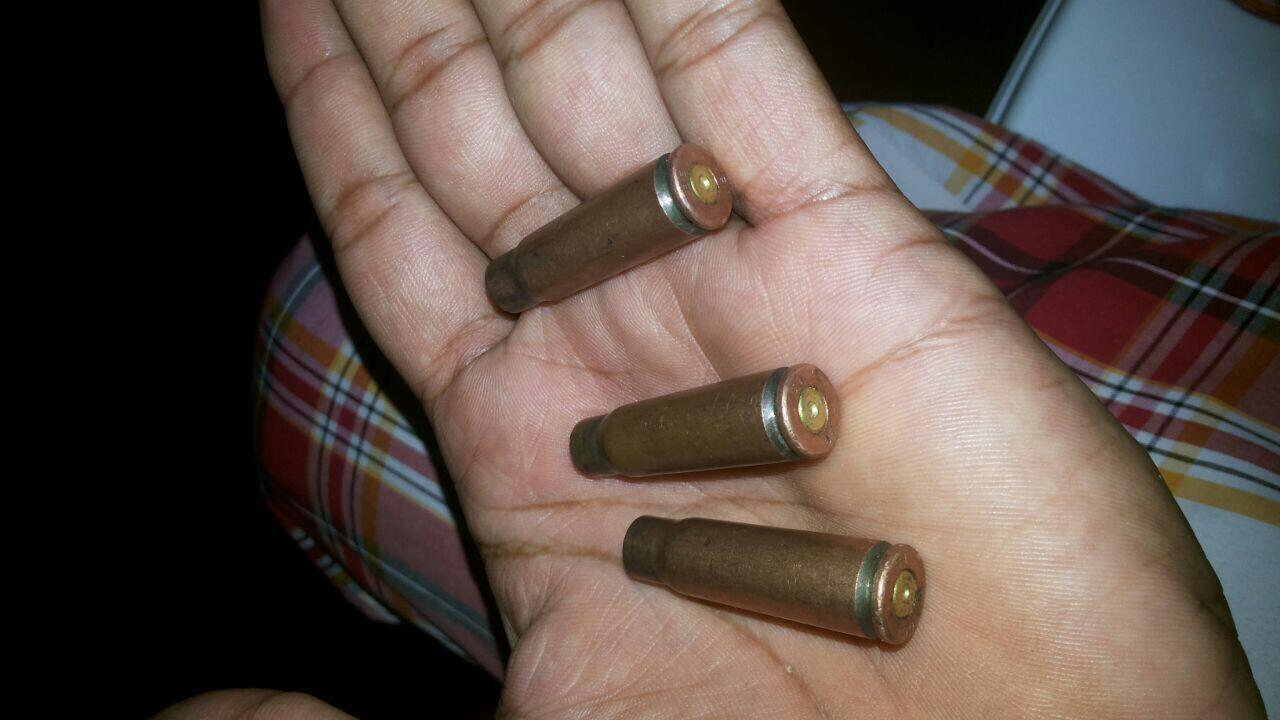Burundi President Pierre Nkurunziza thanks army on return
- Published
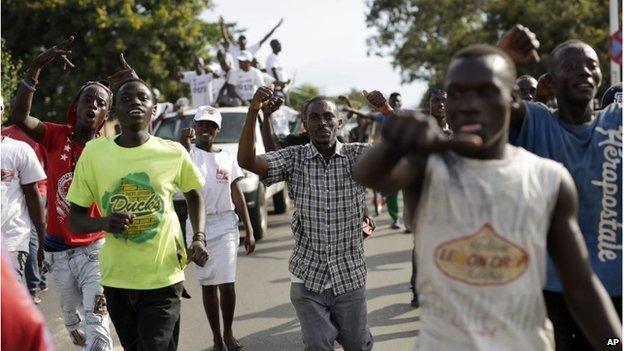
Cheering supporters turned out for the president's arrival
Burundi's President Pierre Nkurunziza has thanked the army for thwarting a coup and called for calm on his return to the capital, Bujumbura.
Mr Nkurunziza also urged people to turn out "in tranquillity" for elections expected in June.
The president was in Tanzania when military leaders moved against his bid for a third term on Wednesday.
Three coup leaders have been arrested, though the main leader is still on the run, a presidential spokesman said.
More than 105,000 people have fled the country since unrest began in Burundi last month, the UN says, external.
After returning from Tanzania, Mr Nkurunziza initially travelled to his northern hometown of Ngozi, before continuing to the presidential palace in Bujumbura.
In an address to the nation published on the president's website, external, he said there was "peace and security all over the country", including the capital, where he said a "handful of rebels set out to shed blood".
He said the army had "showed courage and determination by thwarting the macabre plans" of coup plotters, adding: "We would like to exhort Burundians to show restraint and calm so that our long-hoped-for democracy should not disappear."
He also said he would retaliate against anyone who launched an attack on Burundi, and that people would "not be allowed to set fire" to the country.
The president arrived in the capital on Friday in a huge convoy and was met by supporters in party colours dancing and celebrating, the BBC's Ruth Nesoba reports.
But she says that in areas of the city that don't support a third term bid, youths barricaded roads and police were said to be firing on them.
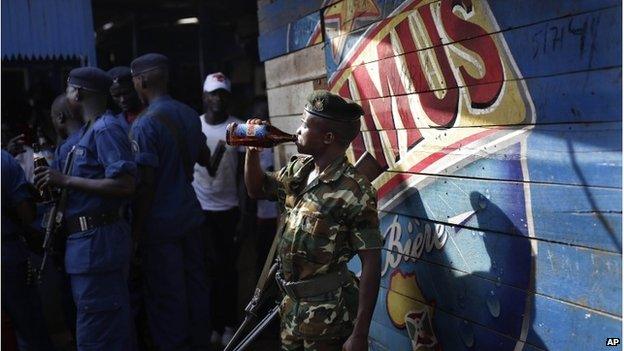
These police officers and a soldier celebrated with beer
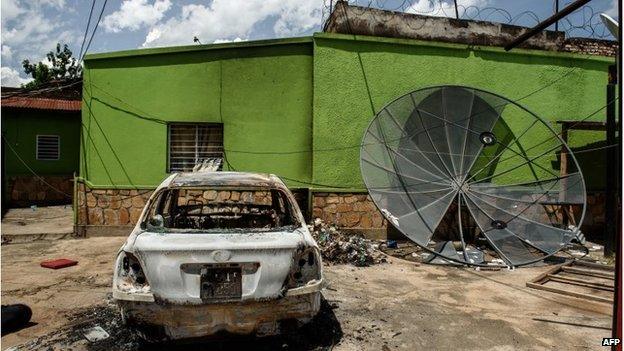
Private broadcasters have been attacked and brought off air
Among the coup leaders arrested on Friday was renegade general and former Defence Minister Cyrille Ndayirukiye.
Security Minister Gabriel Nizigama told the BBC that two police commissioners and about a dozen other police officers had also been detained after a brief exchange of fire at a house where they were hiding.
Gen Godefroid Niyombare, who announced the coup attempt on national radio on Wednesday, had not been arrested, though he told AFP news agency that he was planning to surrender, saying: "I hope they won't kill us."
Three generals were detained but the coup leader remains on the run, officials said
The UN's human rights commission has warned against revenge attacks, saying it was "very concerned by developments in Burundi over the past two days".
Residents of Bujumbura spoke of an uneasy calm on Friday, following fighting between loyalist soldiers and supporters of Gen Niyombare on Thursday.
Unrest started on 26 April, a day after the 51-year-old president said he would run for re-election in June.
Since then at least 25 people have been killed and tens of thousands have fled to Tanzania, Rwanda and the Democratic Republic of Congo.
Opponents said Mr Nkurunziza's bid contravened the constitution, which states a president can only be elected to two terms.
The president argued he was entitled to a third term because he was first appointed to the role by parliament in 2005, rather than elected.
The US reiterated its opposition to a third term. The bid "has and will continue to exacerbate instability, and potentially foment violence in the country," state department spokesman Jeff Rathke said.

How coup attempt unfolded
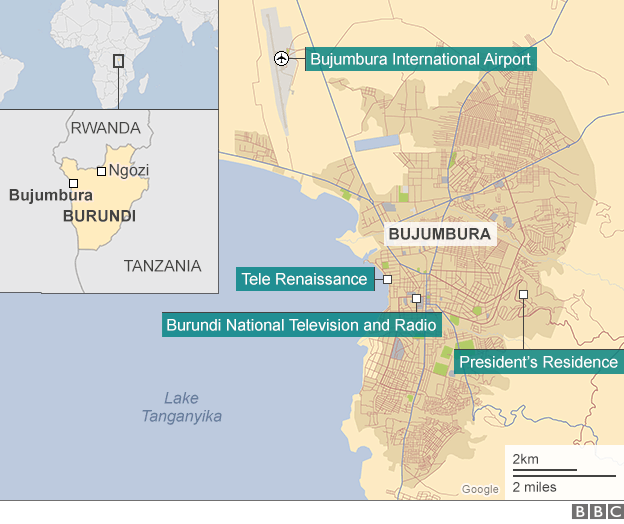
25 April: President Pierre Nkurunziza is nominated for a third term in office, a move his opponents say is unconstitutional
26 April: Protesters take to the streets of the capital Bujumbura, clashing with police over the decision, and more demonstrations follow in the coming days
6 May: President Nkurunziza praises the constitutional court's approval of his candidacy, and says his third term will be his last
9 May: Seven other hopefuls file their candidacies
13 May: With President Nkurunziza in neighbouring Tanzania discussing the crisis, General Godefroid Niyombare announces the dismissal of the president and his entire cabinet; thousands celebrate - but the coup attempt fails
- Published14 October 2015
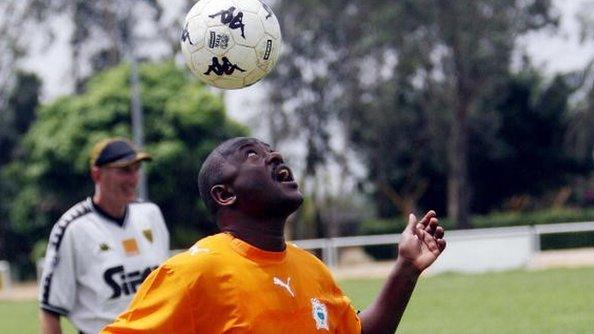
- Published15 May 2015
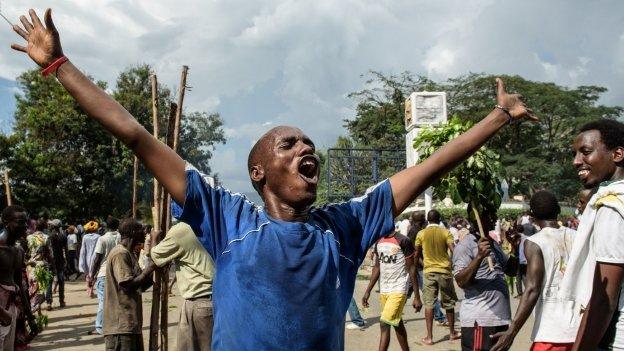
- Published13 May 2015
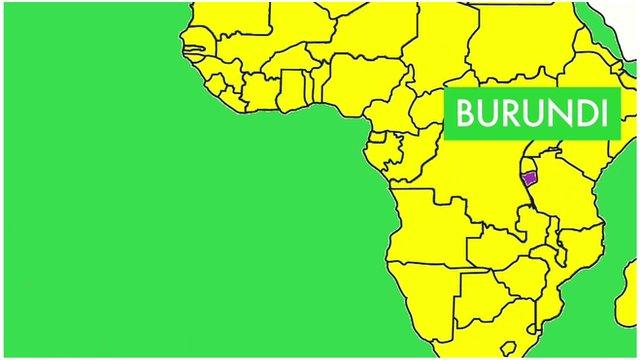
- Published31 July 2023
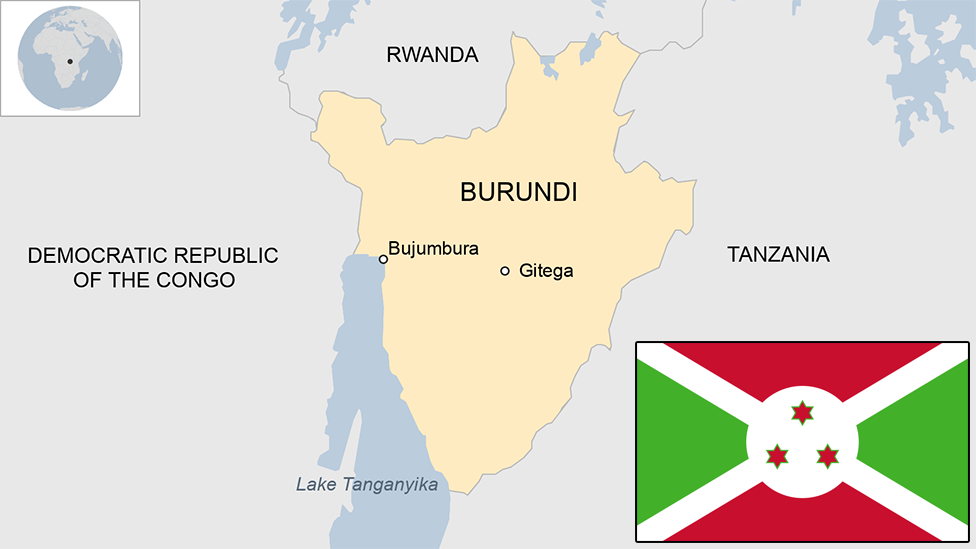
- Published15 May 2015
